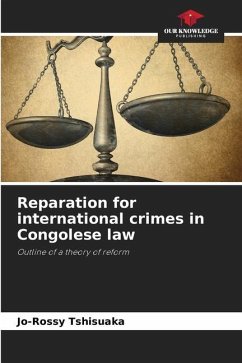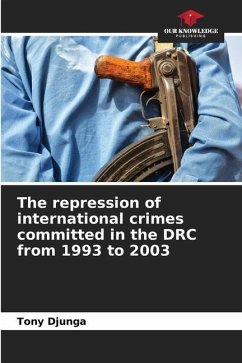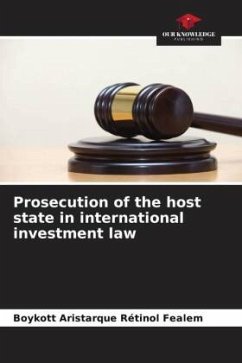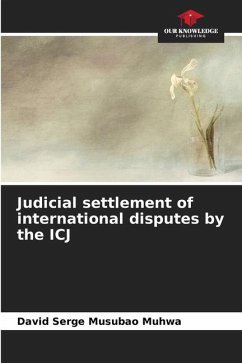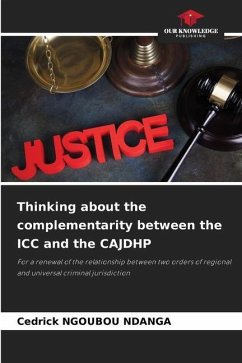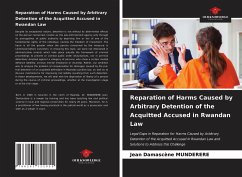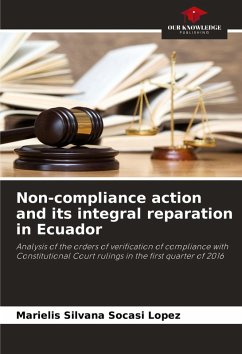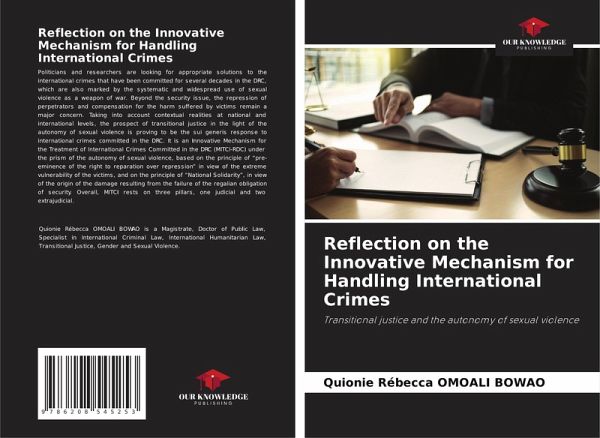
Reflection on the Innovative Mechanism for Handling International Crimes
Transitional justice and the autonomy of sexual violence
Versandkostenfrei!
Versandfertig in 6-10 Tagen
29,99 €
inkl. MwSt.

PAYBACK Punkte
15 °P sammeln!
Politicians and researchers are looking for appropriate solutions to the international crimes that have been committed for several decades in the DRC, which are also marked by the systematic and widespread use of sexual violence as a weapon of war. Beyond the security issue, the repression of perpetrators and compensation for the harm suffered by victims remain a major concern. Taking into account contextual realities at national and international levels, the prospect of transitional justice in the light of the autonomy of sexual violence is proving to be the sui generis response to internatio...
Politicians and researchers are looking for appropriate solutions to the international crimes that have been committed for several decades in the DRC, which are also marked by the systematic and widespread use of sexual violence as a weapon of war. Beyond the security issue, the repression of perpetrators and compensation for the harm suffered by victims remain a major concern. Taking into account contextual realities at national and international levels, the prospect of transitional justice in the light of the autonomy of sexual violence is proving to be the sui generis response to international crimes committed in the DRC. It is an Innovative Mechanism for the Treatment of International Crimes Committed in the DRC (MITCI-RDC) under the prism of the autonomy of sexual violence, based on the principle of "pre-eminence of the right to reparation over repression" in view of the extreme vulnerability of the victims, and on the principle of "National Solidarity", in view of the origin of the damage resulting from the failure of the regalian obligation of security. Overall, MITCI rests on three pillars, one judicial and two extrajudicial.





